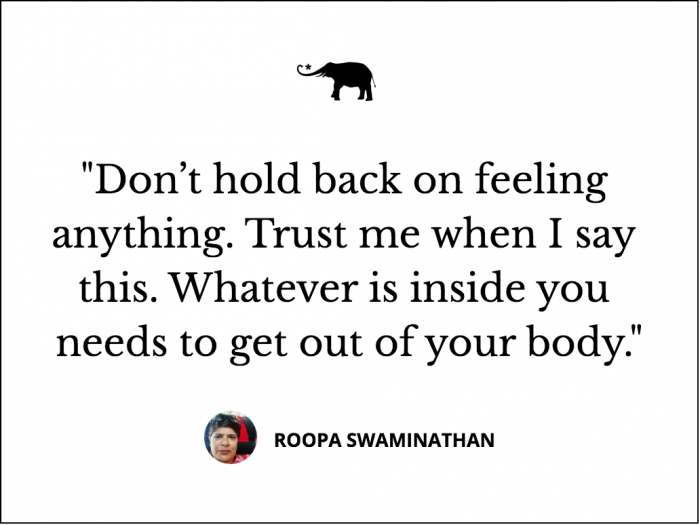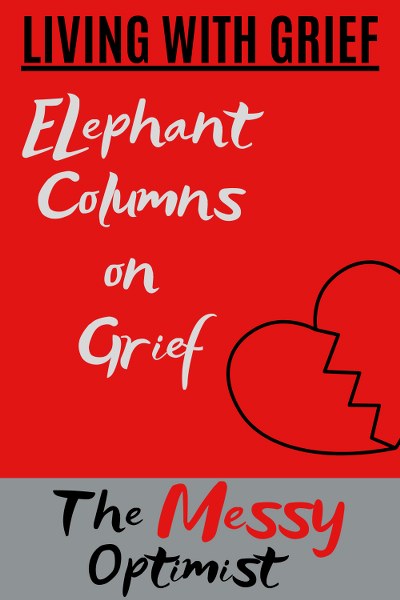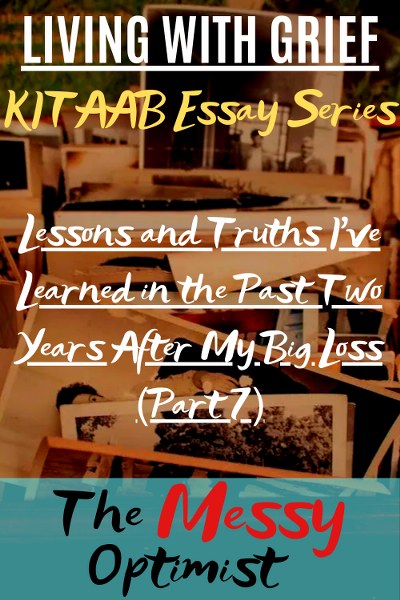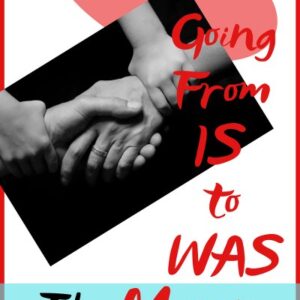Living with Grief: 12 Things to Expect After a Loss
by Roopa Swaminathan
Also published at Elephant Journal.

So, it’s been 10 long, extremely long months since I learned what it means when someone extremely close to you, someone who defines your very existence, passes away.
I was just thinking back to this time last year—I had so much hope. The whole world was under a lockdown, and I was hoping and praying that 2021 would be so much better than how it was then.
Cut to October 2021, and things are nowhere close to being normal. I thought then that maybe the pandemic and the restrictions thereof might possibly still be around, but what I did not know was that people I held so close to my heart would no longer be around.
As much as losing someone close leaves you shell-shocked, for me (and many of my fellow loss-travelers), what happened after, was almost as shocking as losing your loved ones. I wish I knew back in December 2020 what I know now.
I wrote this post for two reasons:
1. I wish I’d found a list like this back then; it may have prepared me for what was to come.
2. If even one other person finds this list helpful, my job is done.
FYI: the following is what happened to me and a few of my fellow loss-travelers. These are our cumulative experiences. I’m not saying that any or all of them could happen to you. I hope they don’t. But I still want you to be aware and be prepared. What’s the saying? Hope for the best but always prepare for the worst?
Here are 12 key things you should expect will happen to you after you face loss:
1. Be prepared for even the closest of families and friends to not be around.
This is a tough one but also one of the most common experiences for people who suffer loss. This happened to me and from my conversations with others who have been through loss—it’s happened to them also. My experiences are not unique in this. And when I say closest of people—these include your best friends, your family members, your friends, and siblings of those who passed, and so many more.
Everyone you think will be there for you will rally around you. Trust me…they might not be there for you. Be prepared to be let down by the very people who should be there for you and will not be.
This may be for a multitude of reasons. They don’t know what to say to you. They want to move on with their lives. They don’t realize that they’re not there for you and you don’t have the mental or emotional bandwidth to bring that up with them without falling apart. You are worried that you will lose what little support you have from them if you bring it up.
But be ready for this one.
This is the biggest and saddest truth that I have faced after December 2020.
2. And then those you never expected will show up and be your rock.
This happened to me as well. For their privacy concerns, I won’t go into details as to who they are, but suffice to say that a few close ones rallied around me like rock stars.
They check in on me regularly. They write to me, call me, force me to get on Zoom and Facebook Room and Google Meet so that they can “see” me. They WhatsApp me all the time and check in.
Frankly, they have restored my faith in humanity. So, be prepared for your heart to be broken but also open your mind and heart to possibilities you never saw coming.
3. Your truth will change—make sure you change it.
Be prepared for a new truth after your loss. Your life—your family, friends, your world—as you knew it before the tragedy will change afterward. Be ruthless and cut off those who are no longer positive for your mental state of mind. And give others a chance. People will surprise you. In good and bad ways (more of the latter, though). But open your heart to new experiences. I’ve connected really well with people in my grief and therapy groups. We’ve all been through loss, and that united us in the beginning. We’re now trying to find other common grounds and trying to build that toward a friendship.
4. Prepare yourself to feel.
I hate pulling the star signs card. But as a Scorpio, I was already someone who felt everything deeply. Euphoric when happy and deeply sad when unhappy. And a long time back, those feelings took over my well-being, and I had to consciously work toward still feeling, but learning to live with it and not allow it to take over me.
But after December 2020, I couldn’t control myself. And this time, I allowed myself to feel everything.
What’s key is that you need to let yourself feel it all. Cry all day if you have to. Wail, yell, and scream in the silence of your house. Yell at God. Yell at the ones who died and left you behind all alone. Yell at the ones who don’t seem to care what happens to you. Do it all. Don’t hold back on feeling anything. Trust me when I say this. Whatever is inside you needs to get out of your body.
5. People will tell you to only “remember the good times.”
And when they do, ask them to bugger off. This is so key. If you have someone whom you can talk to about the loss in your life, please do so. After being advised to get therapy by friends who’d been through loss themselves, I did. Don’t get me wrong. Therapy helps. But it’s a one-sided conversation with my therapist. My therapist listens, but they didn’t know the people I lost.
However, I yearn to talk to people who knew the ones I lost. I, particularly, want to talk about what happened, especially the days and weeks leading up to their passing. I need to talk about all the bad stuff that happened at the end, but I haven’t been able to. I know that my heart would feel so much lighter if I could do the same.
So, if you have someone in your life who knew the person you lost and do not have issues talking to you about it, talk to them.
Also, if someone tells you that you should forget the bad and negative thoughts and feelings and think of only the so-called positive memories, don’t. You’re doing yourself no favors. You are simply pushing the unsettling thoughts to the back of your mind. And it will build and build until one day you will crash and burn.
Just let it all out. Eventually, you will reach a point where you will no longer want to talk about the bad times and you will want to remember only the good times. But you need to come to that point organically. And don’t let anyone tell you otherwise.
6. Be prepared to cling.
Even the most independent among us will cling at the beginning. And that’s okay. In the immediate aftermath of loss, most of us want to cling to the relationships with those we left behind. Even with those with whom you barely had a relationship before. That’s because grief makes us cling. Grief thinks that surrounding yourself with noise, especially people noise, will make the grief go away. Or at least lessen it.
It works well for some. Not so much for others.
I clung a lot in the beginning. But it didn’t really help since there were people around me but no one to really talk to. If anything, I found myself suppressing my grief so much more when I was with others. I felt like I was expected to behave in a certain way because my palpable grief unsettled those around me. My pretended laughter made people around me feel better. Or that’s how I thought they felt. Because that’s how it is.
But I needed people in the beginning. So, I allowed myself to be with them. But then I started to find my inner strength and slowly became more independent like I used to be. You will too.
I’m still desperately sad and feel alone in my journey of loss. But I no longer cling to anyone who doesn’t want to be clung to.
7. Your loss will make others uncomfortable.
Yes. This will happen. Your grief and loss will unsettle and make it uneasy for others. This is something I learned the hard way. I’ve lost count of the number of times when people ask me how I am and they do not want the truth. My pretended “I’m okay!” allows them to move on. So, I started to say, “I’m okay.”
And then there are those who need me to make them feel better about my loss. That will happen too.
Be prepared.
8. Everyone around you will move on while your life will stay exactly where it was the day you lost your loved one.
This is the simple truth of life. Life goes on. And it will—for almost every single person around you. But your life is still where it was—the day you lost that person in your life. It’s 10 months for me now. I continue to live, work, write, and here I am…it’s October. But my heart and soul are still irrevocably stuck in December 2020, even as everyone around me is living their lives.
Look. I get it. Life has to go on. But that doesn’t mean that somewhere your heart just broke again because the world is moving on without the ones you lost.
9. People will not follow up the way you hope they will.
This is something that everyone I have spoken to has confirmed. You think that if someone close to you suffers from a loss, you will be there for them. That’s what you think and hope you will do. So, you naturally expect others to do the same for you.
They. Will. Not.
People (close and otherwise) might not check in with you. Even those closest to you might not check in as much as you need. Not because they’re being mean. But many don’t “get” what you need. And, honestly, everyone has a life and work and children and parents and a boss. And you realize that. But your heart still yearns and prays and hopes they will check in with you more frequently. But they might not.
Personally, but for those chosen few who rallied/rally around me, I’d have fallen apart. They have literally carried me on their backs and shoulders.
10. Find an outlet to grieve.
I’m in therapy. I worked a few months with a life coach (it didn’t work for me as much as I hoped it would), and I also do online group loss therapy. You need to be able to talk about your loss. Especially if that loss came about after a long illness, or a long hospitalization, after you had to make choices that you think caused the tragic outcome. But you have to talk about what happened. If not, the guilt of what happened will eat you alive.
11. Time is not a healer.
Ten months on, I still think of the ones I lost every single second of every single minute of every single hour of every single day. I am constantly sad. The only difference is that I now (also) smile. Sometimes. A few weeks back, I watched season one of “Ted Lasso” and laughed and bawled and ugly-cried. For a few moments, I lost myself and my grief when I watched the show. Otherwise, 10 months on, my grief is still the same.
Time hasn’t healed me or my loss—I’ve just found a way to live around my loss.
12. Finally, you will be angry.
Oh, you will be angry. You’ll be angry at life for taking your loved ones. You will be angry that others get to have their dear ones with them. You’ll be angry at those who don’t care enough to check in and ask how you are or how you feel. You’ll be angry with those who let you down. And trust me, you will be let down. You will be angry at the world for moving on. If you’re a theist, you will be angry with God. You will be angry with folks who want you to “snap out of it.”
So be angry. Rage and rave and rant, even if it is in the privacy of your home. Because trust me, if you let it simmer, you will only hurt yourself.
Ten months in, I am still so, so, so angry.
But if you truly wish to heal, you have to forgive those who have hurt you and let you down and moved on or asked you to “bounce back”—especially since you just cannot.
Not yet.
So, forgive everyone else for forgetting and moving on. But forgive yourself as well for never ever forgetting and never being able to fully move on.
Because you never will. And it’s okay that you never will.



